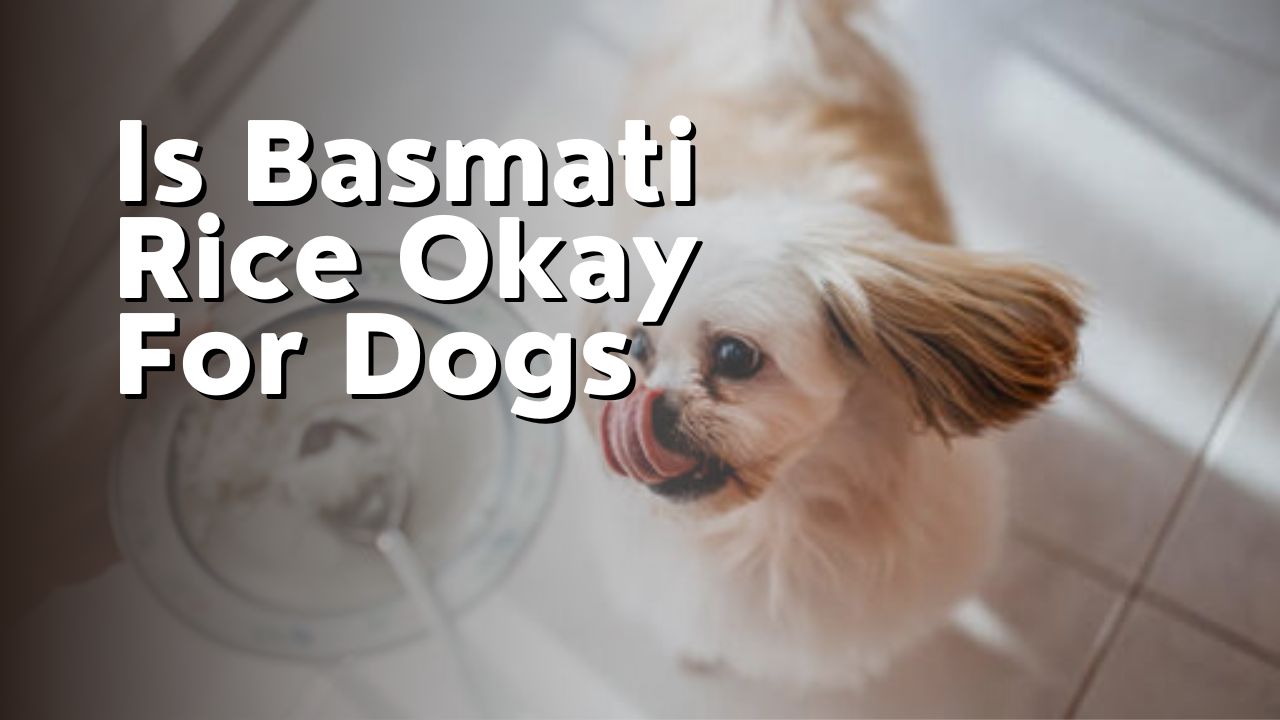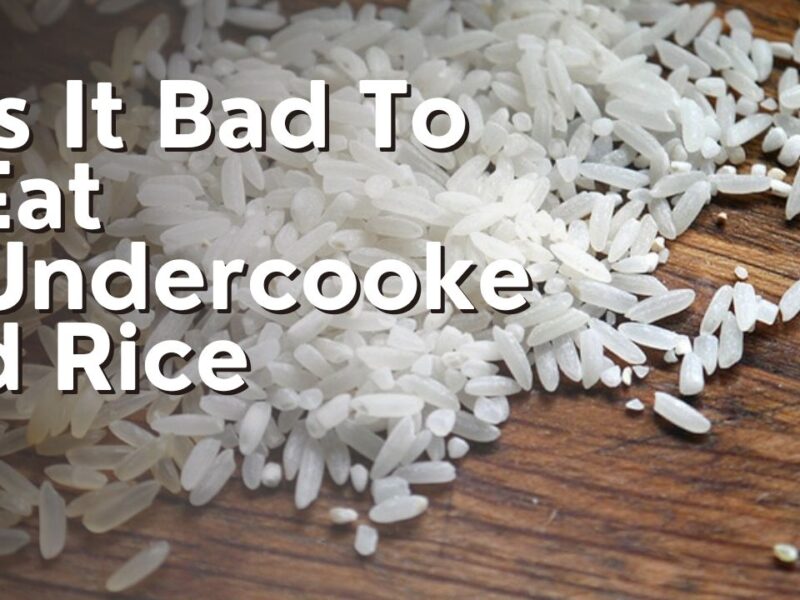I’ve always wondered if basmati rice is safe for dogs. As a dog owner, it’s important for me to understand what foods are beneficial and which ones may pose risks to my furry friend.
In this article, I will explore the nutritional benefits of basmati rice for dogs, as well as any potential risks and considerations to keep in mind. I will also provide tips on how to incorporate basmati rice into your dog’s diet safely.
However, it’s crucial to remember that every dog is unique, and what works for one may not work for another. Consulting with a veterinarian for individualized dietary advice is always recommended.
Additionally, I will discuss alternative grain options for dogs with specific dietary needs.
So, let’s dive in and find out if basmati rice is indeed okay for our beloved canine companions.
- Understanding the Nutritional Benefits of Basmati Rice for Dogs
- Potential Risks and Considerations When Feeding Basmati Rice to Dogs
- Incorporating Basmati Rice Safely into Your Dog's Diet
- Consulting with a Veterinarian for Individualized Dietary Advice
- Alternative Grain Options for Dogs with Specific Dietary Needs
- Frequently Asked Questions
- Conclusion
Understanding the Nutritional Benefits of Basmati Rice for Dogs
If you’re looking to add some variety to your furry friend’s diet, basmati rice can be a nutritious and delicious option for them! As a dog owner, I understand the importance of providing a balanced and healthy diet for my pet. While dogs primarily thrive on a diet of meat, incorporating some grains like basmati rice can offer several nutritional benefits.
Basmati rice is a long-grain rice that is known for its aromatic flavor and fluffy texture. It is a rich source of carbohydrates, which provides energy to dogs. Carbohydrates are essential for fueling their active lifestyles and maintaining proper bodily functions. Additionally, basmati rice is low in fat and cholesterol, making it a suitable option for dogs who need to watch their weight or have certain health conditions.
Another advantage of basmati rice is its fiber content. Fiber promotes healthy digestion and can help prevent constipation in dogs. It also aids in regulating blood sugar levels, which is beneficial for dogs with diabetes or insulin resistance.
When preparing basmati rice for your dog, it is important to cook it thoroughly and without any added seasonings or oils. Plain, boiled basmati rice is the best option to ensure your furry friend receives all the nutritional benefits without any potential harm.
Overall, basmati rice can be a great addition to your dog’s diet, providing them with essential nutrients and adding some variety to their meals. Just remember to introduce it gradually and in moderation, taking into account your dog’s individual dietary needs.

Potential Risks and Considerations When Feeding Basmati Rice to Dogs
When incorporating this grain into your pet’s diet, it is crucial to be aware of the potential risks and factors to consider. While basmati rice can provide nutritional benefits to dogs, there are a few things to keep in mind.
First, it’s important to remember that every dog is different, and what works for one may not work for another. Some dogs may have allergies or sensitivities to grains, including rice. It’s always a good idea to consult with your veterinarian before introducing any new food into your dog’s diet.
Another consideration is the cooking method. Basmati rice should be thoroughly cooked before feeding it to your dog. Undercooked rice can be difficult for dogs to digest and may cause gastrointestinal issues like diarrhea or constipation. It’s also important to avoid adding any seasonings or additives to the rice, as these can be harmful to dogs. Plain, cooked basmati rice is the best option.
Lastly, moderation is key. Rice should never be the main component of your dog’s diet, as they require a balanced diet that includes protein, fats, and carbohydrates. Basmati rice can be used as an occasional addition to their regular meals or as a treat. Remember to monitor your dog’s weight and overall health when introducing any new food to its diet.
In conclusion, basmati rice can be a safe and nutritious addition to a dog’s diet when fed in moderation and prepared properly. However, it’s important to consider your dog’s individual needs and consult with your veterinarian before making any dietary changes.
Incorporating Basmati Rice Safely into Your Dog’s Diet
To safely incorporate basmati rice into your dog’s diet, it’s important to consider their individual dietary needs and consult with a veterinarian. Before introducing basmati rice, ensure your dog doesn’t have any grain allergies or sensitivities. Your vet can determine if basmati rice is suitable.
When incorporating basmati rice, cook it thoroughly without adding spices or seasonings. Plain, cooked basmati rice is best. Mix small amounts with your dog’s regular food to see how they tolerate it. Start small and increase gradually.
Remember, basmati rice should only supplement your dog’s regular diet, not be the main source of nutrition. Give it in moderation and balance it with other healthy ingredients. Basmati rice provides carbs and fiber, but shouldn’t replace regular dog food.
Overall, incorporating basmati rice safely requires consideration and guidance from your vet.
Consulting with a Veterinarian for Individualized Dietary Advice
Seeking guidance from your vet is essential for personalized dietary advice tailored to your furry friend’s unique needs. Consulting with a veterinarian can help ensure that you are incorporating basmati rice into your dog’s diet in a safe and appropriate manner. Here are three reasons why consulting with a vet is crucial:
- Health assessment: A veterinarian will conduct a thorough health assessment of your dog to identify any underlying health conditions or dietary restrictions. This assessment will help determine if basmati rice is suitable for your dog and if any modifications need to be made.
- Portion control: Your vet can provide specific guidelines on how much basmati rice should be included in your dog’s diet. They can take into account your dog’s age, weight, activity level, and overall health to ensure that the portion size is appropriate and balanced.
- Nutritional balance: Basmati rice can be a valuable source of carbohydrates for dogs, but it should not be the only component of their diet. A vet can help you create a balanced meal plan that includes other essential nutrients, such as proteins, fats, vitamins, and minerals, to meet your dog’s nutritional needs.
By consulting with a veterinarian, you can ensure that your dog’s diet is tailored to its specific requirements, promoting its overall health and well-being.

Alternative Grain Options for Dogs with Specific Dietary Needs
One option for dogs with specific dietary needs is to explore alternative grain options. While basmati rice is generally safe for dogs, there may be instances where a dog requires a different grain due to allergies or sensitivities. It is important to consult with a veterinarian to determine the best grain option for your furry friend.
There are several alternative grains that can be beneficial for dogs with specific dietary needs. Quinoa, for example, is a gluten-free grain that is high in protein and contains essential amino acids. It is also rich in fiber, which can aid in digestion. Another option is brown rice, which is a whole grain that provides dogs with essential nutrients like vitamins B and E. It is also a good source of fiber and can help regulate blood sugar levels.
To help you better understand the benefits of these alternative grain options, I have created a table below:
| Grain | Benefits |
|---|---|
| Quinoa | High in protein and essential amino acids, gluten-free, aids in digestion |
| Brown Rice | Whole grain, rich in vitamins B and E, a good source of fiber, helps regulate blood sugar levels |
By considering these alternative grains and consulting with a veterinarian, you can ensure that your dog’s specific dietary needs are met and that they receive the necessary nutrients for optimal health.
Frequently Asked Questions
Can I feed my dog basmati rice as a complete meal?
No, basmati rice alone is not suitable as a complete meal for dogs. They require a balanced diet with essential nutrients. Consult a veterinarian to determine the best diet for your dog’s specific needs.
How much basmati rice should I feed my dog?
I would suggest feeding my dog around 1/4 to 1/2 cup of cooked basmati rice per meal, depending on its size and dietary needs. It’s important to consult with a veterinarian for specific guidance.
Can I mix basmati rice with other types of rice for my dog’s diet?
Yes, I can mix basmati rice with other types of rice for my dog’s diet. It provides variety and can be a good source of carbohydrates. However, I should ensure that the overall diet is balanced and meets my dog’s nutritional needs.
Are there any specific health conditions in dogs that may be worsened by feeding basmati rice?
There are no specific health conditions in dogs that may be worsened by feeding basmati rice. However, it’s always best to consult with a veterinarian to ensure that it is suitable for your dog’s individual dietary needs.
Can basmati rice help with my dog’s digestive issues?
Basmati rice can be beneficial for my dog’s digestive issues. It is easily digestible and can help soothe an upset stomach. However, it’s important to consult with a veterinarian before making any dietary changes for my dog.
Conclusion
In conclusion, I’ve found that basmati rice can be a beneficial addition to a dog’s diet. It offers nutritional benefits and can be easily incorporated into their meals.
However, it’s important to be aware of potential risks and consult with a veterinarian before making any changes to their diet. It’s always best to prioritize their individual dietary needs and consider alternative grain options if necessary.
Keeping your furry friend’s health in mind, basmati rice can be a safe and healthy choice for them.


